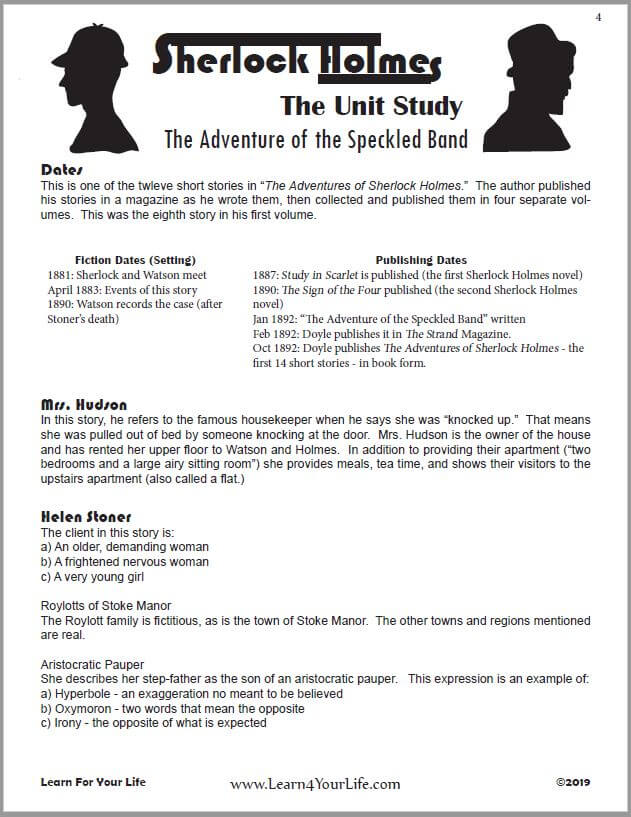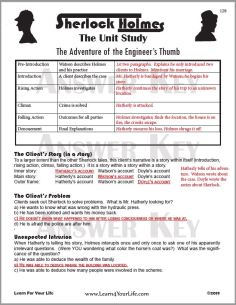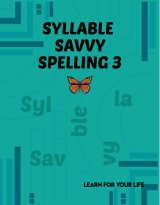Adventure of the Priory School
#F-29 PRIO
In The Adventure of Priory School Sherlock Holmes chooses between shielding the rich and famous or justice for the friendless and unknown. He chooses both.

This is the twenty-ninth Sherlock Holmes short story and the first in the collection The Return of Sherlock Holmes.
This is an analysis and not a summary of the plot. We highly recommend you read the actual story, if you haven't already.
Dating of the Story
- Setting of the story: begins May 16. The year isn't given but we can infer
- It would be after 1895 - since Holmes reappeared in 1894
- It would likely be after 1898 or 1899 since the Duke and Duchess married in 1888 and Lord Saltire is ten years old.
- That dating assumes the Duke didn't make the same mistake twice. (Maybe that is assuming too much.)
- Date recorded by Watson: not specified.
- First published by Doyle in The Strand: Feb 1904
- Published in Book Form: 1917 The Return of Sherlock Holmes - the fourth collection of short stories
A Critique: Three Perspectives
The Adventure of the Priory School stands alone in the Sherlock canon for several reasons which we will describe below. But many find it unrealistic and dissatifying: a father who doesn't rescue his youngest son from kidnappers, an accomplice to murder allowed to escape to Australia by Sherlock. The critique of this story can take one of three different directions.Critique of the Father
Here we have a father who abhors public exposure so much that he:- Offers a 6 thousand pound reward for the return of his son, but doesn't allow the news to be shared
- Stifles the police in their search
- Does not take the son immediately away from the kidnappers when he is found
- Abets the escape of his guilty son and his co-conspirator accused of murder
Critique of Sherlock
In this tale it appears Sherlock has lost his moral compass. For the first time he seems obsessed with money, taking a case he initially declined when offered a reward and demanding the said-reward before expounding his solution.Moreover, he points the police in the direction of the inn-keeper who faces the gallows but allows Wilder who hatched the plan to escape to Australia. Is this ethical behavior of our detective-hero?
Critique of Doyle
One might say that the glaring faults mentioned above are a reflection of the carelessness that Doyle occasionally let creep into his stories. He was known to have preferred to spend time on his "more serious writing" and pressed for time he may have allowed the un-allowable to cheapen this particular plot.The Correct Critique Is....
My theory is the true critique is #1 above: the Duke is a tormented character controlled by grief and guilt which caused him to act outside the normal bounds of behavior. Sherlock, rather than being a total narcissist understands the psychotic dilemma and responds in a manner that gets past the Duke's charade. And Doyle, rather than taking a cheap shot, reveals the complexity of the human psyche within the confines of Victorian-era British social norms (which he doesn't exactly critique.)Have you ever heard the expression, "You can't make this stuff up" or, "Truth is stranger than fiction?" The Duke's avoidance of his own public role is bizarre enough it becomes believable. And who best understands that aversion to humanity than Sherlock himself, the only one who unravels the riddle.
Look below for more amateur-psychoanalysis of this Duke character and how Sherlock, the world's number one recipient of amateur-psychoanalysis, psychoanalyzed him.
Features of the Action Plot
A quick review of the structure indicates that The Adventure of the Priory School follows the typical Sherlock Holmes action plot. For a quick summary, the italicized words in parenthesis indicate the typical-Doyle pattern for Sherlock short stories.- Pre-Introduction - (Watson's Opening) - An 8 paragraph dramatic entrance of Doctor Thorneycroft Huxtable
- Introduction (Client's explanation of the case) - Dr. Huxtable outlines the kidnapping of the duke's son
- Rising Action - (Holme's Investigation) - Holmes and Watson conduct an on-site investigation at the school
- Climax - (The surprise solution) - Holmes confronts the Duke
- Falling Action - (Explanation and outcome) - Duke Holdernesse explains Wilder's actions
- Denouement - (Final explanations, and ending remark) - Explanation of the cow/horse prints and Holme's uncharacteristic exit
Opening: A Dramatic Entrance
If you have followed our Sherlock-Holmes short story series, you know we like to compare Doyle's three different openings. Here we have a fantastic Baker Street Scene unlike any other.First comes Watson's opening line:
We have had some dramatic entrances and exits upon our small stage at Baker Street, but I cannot recollect anything more sudden and startling than the first appearance of Thorneycroft Huxtable, M.A., PhD, etc.
What's In A Name?
Before we expound further on this theatrical entrance, let's hover over the name. I did do a search of Thorneycroft as I had never noted it in any list of potential baby names and suspected Doyle invented it for effect. Turns out it is the name of a bullpup rifle from this era. (Silly me, I didn't know there was such a thing as a bullpup rifle, though I do recall Watson kept a bull pup when he and Sherlock first met.)The full name "Thorneycroft Huxtable" produces a veritable sound when spoken by the human tongue. Try introducing yourself to a stranger using that name and you'll see what I mean. Anyway, it leaves a questionable impression, no doubt intended by the author. Second he has a slew of letters after his name:
His card, which seemed too small to carry the weight of his academic distinctions, preceded him by a few seconds...
So our new prospective client gets a few seconds more of gentle ridicule. We know he is an educated man and can only guess what additional letters in what sub-specialties followed the grand name of Thorneycroft Huxtable. (By the way, DON'T eat crackers before introducing yourself with that name. It is not a good effect.)Down He Goes
The next few sentences are so rich I just have to include them here:...and then he entered himself - so large, so pompous, and so dignified that he was the very embodiment of self-possession and solidity. And yet his first action, when the door had closed beyond him, was to stagger against the table, whence he slipped down upon the floor, and there was that majestic figure prostrate and insensible upon our bearskin hearthrug.
I cannot think of any more dramatic or comical openings in the Sherlockian canon. But just in case you aren't convinced that Arthur Conan Doyle gave his literary-best to this tale, let me add one more piece of exposition:We had sprung to our feet, and for a few moments we stared in silent amazement at this ponderous piece of wreckage which told of some sudden and fatal storm far out on the ocean of life."
More About the Man
It isn't the intent to rewrite the entire story on this page, so let me briefly outline what other gems can be gathered about this visitor in the next lines:- Heavy white face was seamed with lines of trouble
- Hanging pouches under closed eyes were leaden in colour
- Loose mouth dropped dolorously at the corners
- Rolling chins unshaven
- Collar and shirt bore the grime of a long journey
- Hair bristled unkept from the well-shaped head
- Puckered eyelids began to quiver
- Pair of vacant gray eyes looked up at us
- The man had scrambled to his feet, his face crimson with shame.
A Peculiar Request
And before we leave this pre-introduction analysis, one more dash of humor is thrown in. The embarassed man requests a glass of milk and biscuit. Just the thing I always ask for when I pass out on a stranger's living room rug.Pre-Introductory Pronouncement and FulFillment
In many of the Sherlock tales, Watson starts with a pre-introductory pronouncement which is later fulfilled by the end of the tale. The pronouncement in this story, if it exists at all, is a bit weak compared to others.Pronouncement
The first line states "We have had some dramatic entrances and exits" then immediately describes the most dramatic entrance summarized above. We can expect a dramatic exit later, though it really fails to deliver the humor and drama of this opening scene.Second, the character of the school principal is "so large, so pompous, and so dignified that he was the very embodiment of self-possession and solidity. And yet his first action, when the door had closed behind him, was to stagger against the table, whence he slipped down upon the floor."
Fulfillment
The proud but staggering principal is a forerunner of the closing scene with the proud Duke. Never shall I forget the Duke's appearance as he sprang up and clawed with his hands, like one who is sinking into an abyss.Below, we will draw a few more paralells between the principal and duke.
Introduction: The Case Unfolds
We move from pre-introduction drama to introduction as Dr. Huxtable outlines his case. A few interesting notes:- Huxtable's first request is to beg Holmes to take the next train to Mackleton, which Holmes refuses. In spite of the sensational entrance, "only a very important issue" could make him leave London with a murder trial and documents case. In short, "No thanks, I'm busy with cases more important than yours."
- That changes when he finds out it is the abduction of the only son of the Duke of Holdernesse, a former cabinet member. I mean, what's a murder trial and documents case compared to this?
- This is one of the few cases where the initial visitor is not the main client. A few other examples include the homeowner in The Adventure of the Red Circle, the high-society intermediary in The Illustrius Client, the team-mate in Missing Three Quarter, and the landlady in The Veiled Lodger. Sherlock much preferred meeting the clients himself.
- But our visitor is more than just a disinterested middleman. The reputation of his school is endangered by the abduction of his most prestigious student right on school grounds. His honor is at stake. And honor, we shall learn, is more important than anything. (Even your son's life.)
"It's a very princely offer. Watson I think we shall accompany Dr. Huxtable back to the north of England. And now, Dr. Huxtable, when you have consumed that milk, you will kindly tell me what has happened, when it happened, how it happened, and finally, what Dr. Throneycroft Huxtable of the Priory School near Mackleton has to do with the matter, and why he comes three days after an event - the state of your chin gives the date - to ask for my humble services."
Comments:
We can deduce that the ever-present Mrs. Hudson silently produced the milk, and presumably biscuit, while Sherlock rehearsed all the known details and accomplishments of the Duke of Holdernesse. He also throws in one of his introductory deductions rather late (the abduction was three days ago due to the length of facial hair.) Apparently even Sherlock was too startled by the startling entrance to make that annoucement earlier.In the next few pages Dr. Huxtable delineates the details of Lord Saltire's abduction, the disappearance of the German master, the unhappiness in the Duke's marriage and household, as well as the unequalled presitige of his preparatory school.
Sherlock Accepts the Challenge
The Abergavenny Murder and the Ferrer's Documents are forgotten:His drawn brows and the deep furrow between them showed he needed no exhortation to concentrate all his attention upon a problem which, apart from the tremendous interests involved, (working for a prestigious client, not to mention the 6000 pounds) must appeal so directly to his love of the complex and unusual.
Of course Holmes does take the opportunity to reproach the principal for:- Waiting so long to contact him while the trail goes cold
- Relaxing the investigation when a false-lead was reported (What! the police stopped searching the area because a man and boy were seen on a train?)
- Thinking the disappearance of a single bicycle was a blind (or intentionally false clue) set by the German master
"In the meantime, I will do a little quiet work at your own doors, and perhaps the scent is not so cold that two old hounds like Watson and myself may get a sniff of it."
Nice that he includes Watson in his wolf-hound analogy. Holmes probably got enough criticism thrown at Huxtable that Watson escapes his customary appraisal.Rising Action
Of course, the rising action is the main part of a detective story, or any other story. It begins when Holmes and Watson, in the company of Huxtable, find themselves in Northern England. Many readers get stuck in the mud of the moor with longitudinal and patched tires. Our timeline below takes the 100 foot view of events, not to rehash them but to see how the parts fit together to create an action plot. (Events in parenthesis are not discussed during the Rising Action, but learned in the Falling Action.)- Thursday, May 16 (evening)
- Meets the duke and secretary on arrival at the school
- Searches the boy's and the instructor's rooms as well as the lawn
- Holmes went into the vicinity alone and returned after 11 pm with a map of the neighborhood.
- Watson and Holmes study and discuss the map
- Learn from Huxtable that the police arrested gypsies who had Saltire's cap.
- (Clue: They found it on the moor, which Holmes just identified as the likely location of Saltire's flight.)
- Friday, May 17
- Before Watson got up, Holmes had investigated the lawn, bicycle shed, and Ragged Shaw Woods.
- Together they inspect the moor.
- The first bike tracks (Dunlap with patch) are found
- They follow the tracks backwards from the moor to the Ragged Shaw Woods by the school (confirming they were related to the school)
- Near the Ragged Shaw they find the Palmer tracks
- They follow the Palmer tracks north, and find the body of Heidegger.
- Holmes sends a local man with a note to Dr. Huxtable about Heidegger's body
- Reviewed all clues and concluded Heidegger chased Saltire on a bicycle after seeing him depart
- Also concluded another man was present in order to strike Heidegger hard enough to kill him
- (Revealed later: Huxtable sent word of Heidegger's death to Holdernesse and Wilder)
- They spoke with Reuben Hayes at the Fighting Cock Inn.
- They ate dinner at the Inn. It was "nearly nightfall."
- While eating Holmes concluded the cow prints were made by a horse.
- They investigated the horse shoes in the smithy and are stopped by Hayes.
- As they leave the inn, they saw a cyclist coming in the direction of Holdernesse Hall. They hid from view.
- They saw James Wilder pass them on a cycle, going wildly to the inn.
- It is now dark. They observed a single man fleeing from the inn in a dog-cart toward the village.
- (Revealed later: Hayes fled leaving his wife and Saltire behind.)
- They saw Wilder in the doorway of the inn and someone joins him from the road.
- (Revealed later: It was the duke who arrived after Wilder left.)
- Holmes confirms the cycle ridden by Wilder has the patched Dunlap tire.
- Holmes climbs on Watson's shoulder to look in the window.
- (Revealed later: Holmes saw the Duke in the inn with Saltire.)
- They walked back to the Priory School. Watson went into the school for the night.
- Holmes walked to Mackleton Station to send some telegrams.
- (Revealed later: Holmes alerted the police to Haye's escape.)
- Holmes returned, consoled Huxtable, and promised Watson the case is almost solved.
- (Watson and readers, unaware of the info in parenthesis above, are still in the dark.)
- Saturday, May 18
- They go to Holdernesse Hall and demand to see the Duke.
- It took the duke one hour to come to them.
- Holmes confronts the Duke.
Climax: Confrontation with the Duke
Because the conversation in the duke's private office marks the climax, we will look at it separately. Of course neither the first-time-reader nor the duke are unaware that we are right on the threshold of discovery.In fact, it is one of the criticisms of the story that Holmes begins the conversation, after dismissing Secretary Wilder, with these words:
"The fact is your Grace, that my colleague, Dr. Watson, and myself had an assurance from Dr. Huxtable that a reward had been offered in this case. I should like to have this confimred from your lips."
After a back and forth with the duke who confirmed the 6000 pound reward:My friend rubbed his thin hands together with an appearance of avidity (ie greed) which was a surprise to me, who knew his frugal tastes.
He further startled Watson by requesting the cheque to be crossed to his bank. (Info: crossing a check refers to stating what bank it is to be deposited in instead of giving the presenter cash.)The duke, as well as Watson and readers, are stunned by Holme's impudence. For those of you who are appalled by Holmes greed, wait until you read more about his motivation. Holmes then announces he has solved the crime.
The Duke fell back in his chair. "And who do you accuse?"
Sherlock Holme's answer was an astounding one. He stepped swiftly forward and touched the Duke upon the shoulder.
"I accuse you," said he. "And now, your Grace, I'll trouble you for that check."
Falling Action: The Motivation for the Kidnapping
Students using Sherlock Holmes: The Unit Study (see below) investigate the "Who" and the "How" and the "Why" of a crime and contrast when they are revealed in the Sherlock canon. In this story, Sherlock uncovers "How" in the afternoon of May 16 and the "Who" in the evening during the Investigation/Rising Action.But he doesn't understand the "Why" until the Confession/Falling Action.
Even Sherlock did not know the reason behind the crime at the moment he sprang his climactic charge. But he learns.
Mr. Wilder is the duke's illegitimate and conniving son who kidnapped Lord Saltire in a plot to force his father to leave the estate to him instead. He has spent his adult life manipulating the father who looked after him but never claimed him. It's a simple enough explanation.
Not so simple, Sherlock responds. The teacher who tried to protect the boy has been murdered and the crime cannot be expunged merely by bringing Lord Saltire back home.
The duke finds out that not only is Wilder implicated in the crime, but he himself can be held as an accomplice by letting Hayes escape.
Let's delve further into the duke below.
A Closer Look at the Duke
At this point, we really need an analysis of the "famous statesman," The Duke of Holdernesse. Let's start with the obvious physical description. As you read down, consider which information might make him less appealing to the duchess (or anyone else.)Looking at the Duke
- Tall and stately
- Scrupulously dressed
- Drawn, thin face with with long curved nose
- Pale complexion
- Long dwindling beard of vivid red which flowed down over his waistcoat
- Watch-chain hanging in his beard (Really?)
- Deep sonorous voice which boomed like a dinner gong
Let's consider his "long dwindling beard of vivid red." Those long pointy beards might look good on Thorin Oakenshield and his dwarvish kin, but for a grown man - and a statesman at that? Moreover, his watch chain is hanging in his beard. I'm thinking a Victorian copy of "Dress For Success" might be in order here.
Bad Actions by the Duke
Above we already mentioned that the duke stifled the police in their search even after offering a huge reward. (This was because his suspicions of Wilder "had never been entirely absent." Let's look at other potentially scandalous or otherwise dumb things this duke did:- He had an illigetimate child he concealed.
- He allowed Wilder to manipulate him to the Nth degree. (See below on Wilder Analysis.)
- He suspected Wilder in the kidnapping but did not confront him until the murder was discovered.
- Once he found out, he did not call the police.
- He promised Wilder a three day grace period to cover up his crime.
- He allowed Wilder to warn Hayes.
- He provided "the means" (ie money) for Haye's escape.
- He did not go immediately to see Arthur when he learned his whereabouts, but waited until dark to avoid being seen. (He really was publicity conscience.)
- He allowed Arthur to stay in danger at the inn in order to protect Wilder.
- He delayed Holmes one hour when they came to the Hall. (What! He didn't think anyone would be coming over? He had time to prepare for this.)
- He tried to bribe Holmes with a twelve thousand dollar pay-off.
The Duke's Motivation
Two things motivated the duke: guilt over the fate of the dead woman he had loved and fear of public exposure. These two emotions are inseparably entwined.He was in love with a woman who declined marriage because of the effect it would have on his career. She died, and he is left with guilt. We don't know how old Wilder was when his mother died or how she died. The duke provided for the child and his education and brought him to the Hall once he was an adult.
It is interesting that he offered marriage to the woman who refused due to his career and presumably his fear of publicity even as a young man. (As his heart's companion, she must have know his abhorence of the public eye.) Unencumbered by marriage to the unnamed woman of lower-birth, he became a cabinet member but stepped down from the position, probably due to his gnawing fear of publicity. The irony is that his fear of publicity started this entire charade.
His love of this woman and his guilt regarding her death allowed James to manipulate him to the ruin of everyone.
A Few Good Things About the Duke
While we can't admire the duke, we can acknowledge he held something of a sensitive and kind disposition:- He loved and cared enough for the woman to feel guilty.
- His statement about "all her pretty ways" indicates on-going affection.
- He did look after the son he had fathered.
- He was "always kind in his own way" to Arthur and tried to protect him (sort of).
- He was somewhat protective of the duchess and convinced she was not a party to the kidnapping. (This could have been an opportunity to take a few swipes at the old gal. Many separated couples revel at such a chance. He did not.)
- Once he realized Holmes was knowledgeable of the case, he accepted him as an investigator.
- He invited Holmes and Watson to stay at the Hall when they first met.
- Once challenged by Holmes, he told all. (Of course, that's how all Sherlock stories end, so maybe we don't owe him much generosity here.)
About James Wilder
He really was a bit of a bad dude. His manipulative behavior started small and ended up in big time trouble:- For years he had threatened to reveal the duke's scandal unless he got whatever he demanded.
- He wrecked the duke and duchess' marriage.
- Young Arthur had to be sent to boarding school to be kept safe from Wilder's jealousy and hatred.
- Had a "taste for low company" (ie. Hayes and probably others)
- Kidnapped his brother who had done him no harm.
- Warned Hayes of the discovery of the murder and helped him escape
- Now Wilder AND the duke are in legal danger.
Duke of Holdernesse and Doctor Thorneycroft Huxtable
We have noted that there is a parallel drawn between these two men. As we saw above, we begin and end the story with proud men brought to physical despair: Huxtable in the introduction and Holdernesse in the falling action.The introduction of this story indicates that both men have a list of letters and abbreviations after their names, indicating both have several college degrees. Both have a strong sense of public honor. In fact one could say their fear of public exposure is stronger than their sense of private honor.
Unlike the duke, the principal is NOT left in any legal danger from the kidnapping once all the players are sorted out.
Sherlock's Behavior in this Story
Sherlock and the Reward
Fans of Sherlock were surely surprised at his apparent greed in this story. In previous cases he:- Works for free (Red Circle)
- Allows them to pay whenever they are able (Speckled Band)
- Refuses to accept additional money from wealthier clients (Thor Bridge)
- Accepts a photo as payment from a king willing to pay a large fee (Scandal in Bohemia.)
Some have theorized that perhaps this event occured not long after his three-year hiatus and his funds were depleted by his travels. Afterall, he calls himself "a poor man." Maybe his funds really were short.
But the fact that he was too busy to accept the case initially also indicates that he had enough business to pay his bills. It wasn't his fee that motivated him; though the position of the duke did attract his attention.
How can we be certain it wasn't money he was after? Simply because he was not the least interested in the twelve thousand pound reward that the duke attempted to bribe him with. Six thousand pounds were offered and that's what he demands. Note that he DID do exactly what the duke wanted when he tried to press the twelve thousand pounds on Holmes and Watson. He was trying to buy their silence. Holmes gave it to him without charge.
Sherlock assessed and understood the duke. He knew he was trying to avoid publicity, though he didn't recognize Wilder as the motivation behind the kidnapping. He spoke to him in the language he understood. Holmes took the proffered reward because he had met the stipulated terms, even if they were somewhat of a charade. Or perhaps because it WAS a charade he saw through as soon as he saw the duke at the inn.
Sherlock Holmes was the son of a country squire and himself a famous detective who had successfully made his earnings "by his wits." He was not a poor man in the sense of needing money to live. But in comparison to a duke (the highest position under kings and princes) he was considerably lower on the social totem pole.
My favorite line in The Adventure of the Priory School:
"To humour your guilty older son, you have exposed your innocent younger son to imminent and unnecessary danger. It was a most unjustifiable action."
The proud lord of Holdernesse was not accustomed to be so rated in his own ducal hall.
Sherlock's Success in this Case
Sherlock comes across as the master detective that he is.- He called the charade of the duke pretending not to know where Lord Saltire was located, and demanded the reward money.
- He called Holdernesse out for his treatment of his younger son.
- He refused to be bribed, insisting that justice for the murdered man prevented a twelve thousand pound hush payment.
- He took over the situation and gave orders for the servants to bring the boy home immediately.
- He announced he had already provided for Haye's arrest.
Sherlock Relents
While we might cheer Holme's success at cracking this case and confronting the duke fearlessly, one still has a few lingering doubts.As he said himself,
"In the first place, your Grace, I am bound to tell you that you have placed yourself in a most serious position in the eyes of the law. You have condoned a felony (kidnapping) and you have aided the escape of a murderer."
It is interesting that Holmes felt "bound" to tell him he was in legal trouble, but as a free agent he didn't feel bound to report him to the law.This is not the first time Holmes made the decision to not report a crime. In The Blue Carbuncle he let a first time thief escape punishment for fear that jail would turn him into a hardened criminal. In The Devil's Foot he let the lion-hunter escape the country knowing that he killed a man to avenge another death. In this case he states,
I am not in an official position, and there is no reason, so long as the ends of justice are served, why I should disclose all that I know.
Translation: As long as the murderer is punished, I'm not going to get any further involved.Holmes doesn't demand any punishment be applied to Wilder, though he does state that "the continued presence of Mr. James Wilder in your household can only lead to further misfortune."
It is then that Holmes discovers Wilder will be dispatched to Australia, undoubtedly with funds to begin a new life for himself, but away from Lord Saltire and Holdernesse Hall.
One may wonder if this is indeed sufficient punishment for one who kidnapped his brother for his own financial gain.
A Closer Look At Holmes

Sherlock and the Duke
Sherlock understood the duke and knew how to relate to him, how to confront him. They shared a common desire to avoid the public eye.This is not the first time Sherlock has shielded others, often the titled-noble class, from public scrutiny. In fact one entire case (Charles Augustus Malverton) involves protecting the privacy of many victims of blackmail. The same with a more famous case Scandal in Bohemia.
As a lower-member of the upper class, he seemed to accept and protect their desire to escape scandal (even scandals of their own making.) Social class is one of the underlying themes of the canon. Sherlock and Doyle do not critique that class and its values; they merely work within it.
In this story, however, we see how Holmes definitively divides the line between social-scandal and the crime of murder. Keep your love affairs and family fights hidden, but justice requires crimes to be punished.
A New View of Holmes
This scene at the discovery of Heidegger's body reveals a different side of Holme's character:Holmes turned the body over reverently, and examined it with great attention. He then sat in deep thought for a time
This is not the callous detective unmoved by a human corpse. While he does not exhibit the squeamishness common to most people in the company of the deceased, he is not hardened. It states he was "reverent" and "deep in thought for a time."In fact, he makes it a priority to take care of the body by summoning a local peasant before returning to his main quest: his investigation.
Reading between the lines, one detects his reverence for humanity. Justice for the friendless German master trumps protection for the famous statesman and duke.
Sherlock At Work
His readers always liked Watson's inclusion of descriptions of Holmes at work. Again in this tale he portrays the genius' dual nature:His eyes shown and his cheek was flushed with the exhiliration of a master workman who sees his work lie ready before him. A very different Holmes, this active, alert man, from the introspective and pallid dreamer of Baker Street. I felt, as I looked upon that supple figure, alive with nervous energy, that it was indeed a strenuous day ahead of us.
Moods of Holmes
Sherlock Holmes was not the impassionate silhouette often depicted. Evidence of his various moods and reactions in this story include:- Gloomy with the initial unfruitful search of the moor.
- Became invigorated with the arrival of new clues: "Halloa, halloa, halloa. What have we here?"
- When threatened by a metal stick by Hayes: "Why, Mr. Reuben Hayes," said Holmes coolly, "one might think that you were afraid of our finding something out."
- When Wilder won't allow him to see the Duke: Holme's cold and inexorable manner showed the secretary that it was useless to argue with him.
- When the duke said the murderer had escaped, Sherlock Holmes smiled demurely. (I would really like to see that.)
Holme's Wit and Sarcasm
Here are a few more quotes and quibbles of the man:
"A criminal who was capable of such a thought" (to change the type of tires on his bike to throw off searchers) "is a man whom I should be proud to do business with."
"It was no brain of a country publican that thought out such a blind as that." (The cow hooves on horse feet.)
"We were warm, as the children say, at that inn. I seem to grow colder every step I take away from it."
Holmes Expertise
Holmes was a man of many and varied talents. In this adventure we learn that he is familiar with 42 types of bicycle treads. In that era that probably covered most of them.And, by the way, my depictions of longitudinal and horizontal tire marks are not the official designs of Palmer and Dunlap tires.
Holme's Counsel
We close the Falling Action with Sherlock's advice to the duke:"I would suggest that you make such amends as you can to the Duchess, and that you try to resume those relations which have been so unhappily interrupted."
Obvious Comment: When you start getting marriage advice from Sherlock Holmes, you KNOW your family is in serious trouble.That leads us to the question if we should add family therapy as one of Sherlock's diverse talents?
I think not.
Denouement: Horse Hooves and Checks
Two little issues remain in the closing paragraphs. They are both telling enough.Horse Shoes
Sherlock had said it was no country publican that had shod the horses with cow-like horse shoes. So who did? The duke considered the question and took Holmes to the family museum. We learn that not only did it possess such horse shoes, but it came from his distant relatives who were cow maurauders in the Middle Ages.Yeah, I wouldn't be too proud of that family history either. No wonder they didn't like the peering public.
Holmes wet his finger and ran it across the ancient horse shoe. Yuck! Even though this was pre-Covid, wetting a Medieval museum heirloom is NOT the thing to do.
The Check
Holmes again surprises readers, Watson, and the duke with his exit. He announced that the horse/cow shoes were the second most interesting object he had seen in the North. When the duke asked him the first:Holmes folded up his check and placed it carefully in his notebook. "I am a poor man," said he, as he patted it affectionately, and thrust it into the depths of his inner pocket.
Final Ending
This tale started with a dramatic entrance and ended with an uncustomary exit (though maybe not exactly as dramatic as the entrance.) We have tracked how the endings of Sherlock Holmes stories range from the philosophic to the flippant.This one is a bit of both, with his flippancy winning the upper hand.
Final Notes
At the commencement of this article, it was noted that one could find fault with Doyle, Sherlock, or the duke for the duke's impermissible behavior, and I chose to blame the duke. It is not that I cannot find fault with either Sherlock or Doyle.Sherlock's behavior in this story points to a master detective who 1) didn't discover everything (he was surprised to find Wilder was Holdernesse's son); 2) who embodies both justice and compassion; 3) who always stays a bit unpredictable.
Basically he is the good guy all around. In this story, anyway.
In spite of that, I still wouldn't go to him for family counseling.
And Doyle? Yes he wrote a great story, even if it does tend to get a bit stuck in the mud while we are out chasing bicycle tracks. Nonetheless, there are a few flaws.
Weak Points & Unanswered Questions
A few points left unanswered after the denouement:- The police didn't think to search the moor between the school and Holdernesse Hall?
- Wilder didn't ask Hayes about the German master who was missing?
- Hayes didn't realize he might want to leave town before the inevitable discovery of the body close to his home?
- Hayes will be sentenced to the gallows, but the duke can buy his silence on his family affairs? How?
Baker Street Treasure Hunt
Those of you joining us on the Baker Street Treasure Hunt will love this item:A bearskin hearth-stone rug
So who drug that thing into their apartment: Holmes, Watson, or Mrs. Hudson?
We'll never know.
Background Information: Entail
The kidnapping occured because Wilder wanted to break the entail. But what is an entail?An entail is an inheritance under British law that required an estate to be passed to specified heirs (ie the oldest legitimate son.) That prevents a family mansion from being sold or passed outside of the family.
Unbeknownst to Mr. James Wilder, the duke would not have been able to make him the main heir by law, so the entire kidnapping plot was a mute point anyway.
Oh well. Crime really doesn't pay.
The unit study below analyzes eight of the most popular Sherlock Holmes stories. The Adventure of the Priory School is not one of the eight in this unit study.
Buy Sherlock Holmes: The Unit Study


Student Guide AND Teacher's Answer Key Included
$2.99 Download - 183 pages
Eight of the most popular tales demonstrate how to investigate a detective story.
![]()
Sherlock Holmes Pages
A catalog of our pages on Sherlock Holmes.
About Our Site
Hands-On Learning
































